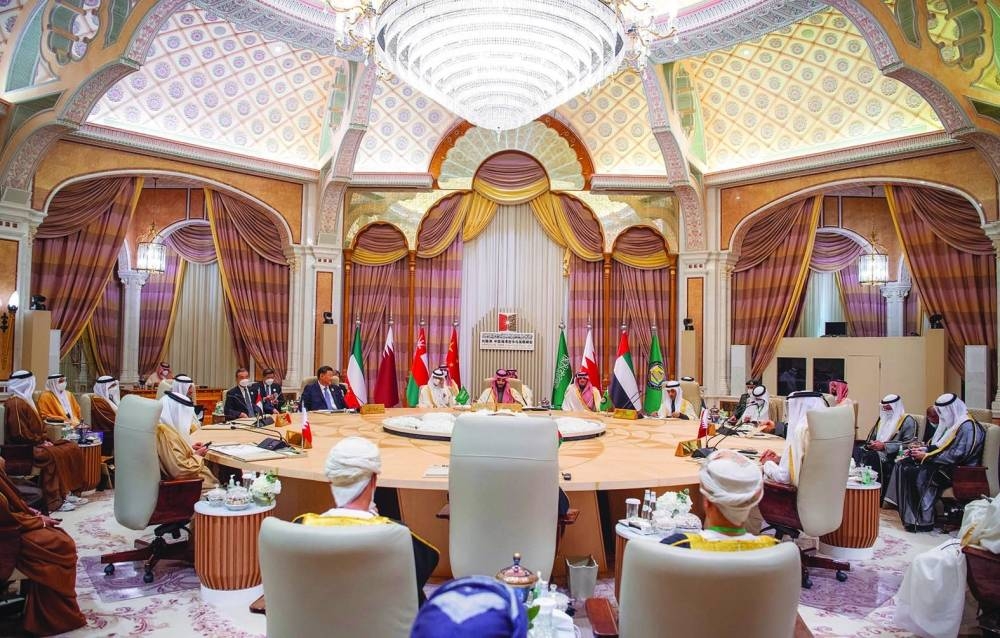The Chinese-Gulf summit praised Friday Qatar's hosting of the FIFA World Cup Qatar 2022, and its role in the civilisational and cultural rapprochement among the peoples of the world.
This came in the final communique issued by the Riyadh Chinese-Gulf Summit for Co-operation and Development.
The statement confirmed that the leaders praised Qatar's success in hosting the World Cup, its good organisation, and its impact on the cultural and intellectual rapprochement among the peoples of the world.
The leaders also denounced the malicious media campaigns directed against Qatar.
They also welcomed Qatar's hosting of the meetings of the second part of the Fifth UN Conference on the Least Developed Countries from March 5-9, 2023, at the level of heads of state and government.
The leaders agreed to strengthen the existing strategic partnership between the GCC and China, and emphasised pushing it towards new horizons in various political, economic and cultural fields, and approved the joint action plan for the coming period (2023-2027) to achieve this.
They agreed to continue strategic dialogue between the two sides at all levels to discuss issues of joint interest, co-ordinate positions on them, support international economic recovery efforts, address the negative economic effects of the Covid-19 pandemic and other challenges, in addition to working to ensure flexibility of supply chains, food security and energy supplies.
The leaders stressed the importance of continuing to deepen co-operation in energy, trade, investment, finance, industry, advanced technology, space and health, in the common interest of both sides, including completing free trade negotiations between them as soon as possible.
They also expressed their keenness to promote dialogue between civilisations, communication and mutual benefit between different cultures, and to preserve cultural diversity.
They stressed that tolerance and coexistence between nations and peoples are among the most important principles and values upon which the international community is based.
They encouraged communication and co-operation between the two sides in culture, education and tourism, as well as media and sports, friendly exchange between intellectual institutions and rapprochement between peoples.
The leaders expressed their condemnation of terrorism, regardless of its source, and their rejection of all its forms and images, and work to dry up its sources of financing, and expressed their determination to strengthen regional and international efforts to combat terrorism and extremism, and to prevent financing, arming, and recruitment of terrorist groups.
They called on Iraq to respect the sovereignty of the State of Kuwait and not violate international resolutions and agreements, in particular Security Council Resolution No 833 regarding the demarcation of the borders between the two countries.
On Palestine, they stressed the importance of reaching a two-state resolution in line with UN resolutions and the Arab Peace Initiative, adding that an independent Palestinian state must be established on the borders of 1967 with East Al Quds as its capital.
They also agreed on the importance of ending settlements and respecting the historical status quo and the religious sanctities in Jerusalem.

